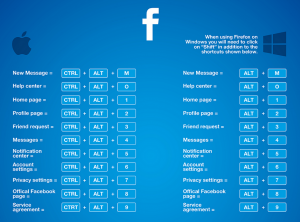
Given today’s hyper-competitive business landscape, career development is quickly being re-branded. Rather than the ‘nice-to-do’ activity of the past, it’s now getting the respect and attention it deserves as the mission-critical business priority that it is.

Of all the tools available to leaders, career development just might be the most flexible, effective and far-reaching—with the ability to positively influence the individual and the organization. In fact, it’s so agile and multi-purposed that career development really is the Swiss Army knife that every leader should have and use.
While the Swiss Army knife opens bottles, cuts seat belts, and strips wire, career development offers even more value to business as it:
- Elevates engagement. Gallup’s State of American Manager study confirms that employees who feel managers are invested in them as people are more engaged. In fact, over 100 studies over the past five years all determine that career development is one of the top three drivers of employee engagement.
- Unlocks discretionary effort. Employees who are engaged as a result of development will tap their frequently underused time, talent, and attention, volunteering more of themselves to the operation and contributing at higher levels.
- Drives greater job satisfaction. Global firm Korn-Ferry contends that there’s a direct link between job satisfaction and career development. Giving employees opportunities to learn and grow actually makes them happier on the job.
- Meets employee expectations. My own research finds that 70% of all employees (across the generational spectrum) believe that one of a manager’s fundamental roles is to support his/her employees’ career development. Failing to align with this belief has a significant impact on the individual and his/her level of engagement.
- Attracts top talent. Recruiting in a competitive employment marketplace is easier and more effective for organizations that have a reputation for developing talent. And—for better or worse—given the visibility that social media facilitates, candidates will make informed choices based upon the perceived opportunity to develop and grow within an organization.
- Reduces unwanted turnover. According to the Hay Group, career development is consistently cited as critical to employee satisfaction with an organization and a key reason people change jobs. And, Corporate Leadership Council research finds that managers who effectively develop employees increase retention by 40%.
- Improves performance. According to that same Corporate Leadership Council research, managers who effectively develop employees drive 25% more performance than their peers who don’t.
- Enhances reputation. When employees are satisfied, customers tend to be more satisfied as well, leading to favorable word of mouth and a positive impression in the marketplace.
- Boosts revenue. Josh Bersin states that, “Strong talent management is good business. Companies with superior talent management practices generate 26% higher revenue per employee than peers.” Bottom-line.
Let’s face it. Busy managers struggle every day to choose among the many initiatives and priorities before them. Maybe there’s an opportunity to lighten their load. Maybe there’s a tool that will help them accomplish more with less. Maybe it’s time for leaders to pull out their Swiss Army knife—career development—and use this multi-purpose tool in their day-to-day lives.
Image by posterize at FreeDigitalPhotos.net
Business & Finance Articles on Business 2 Community(97)
Report Post








